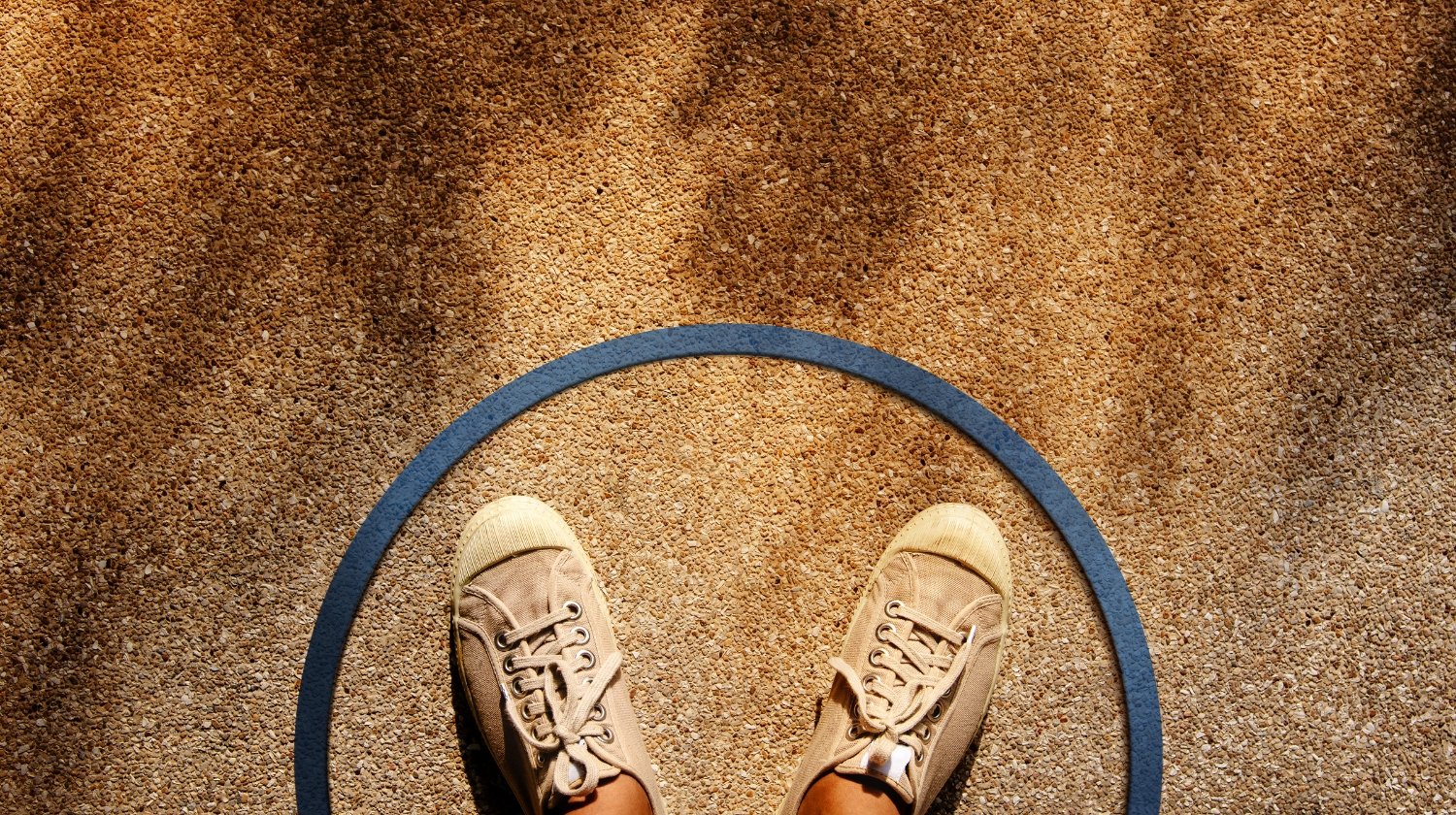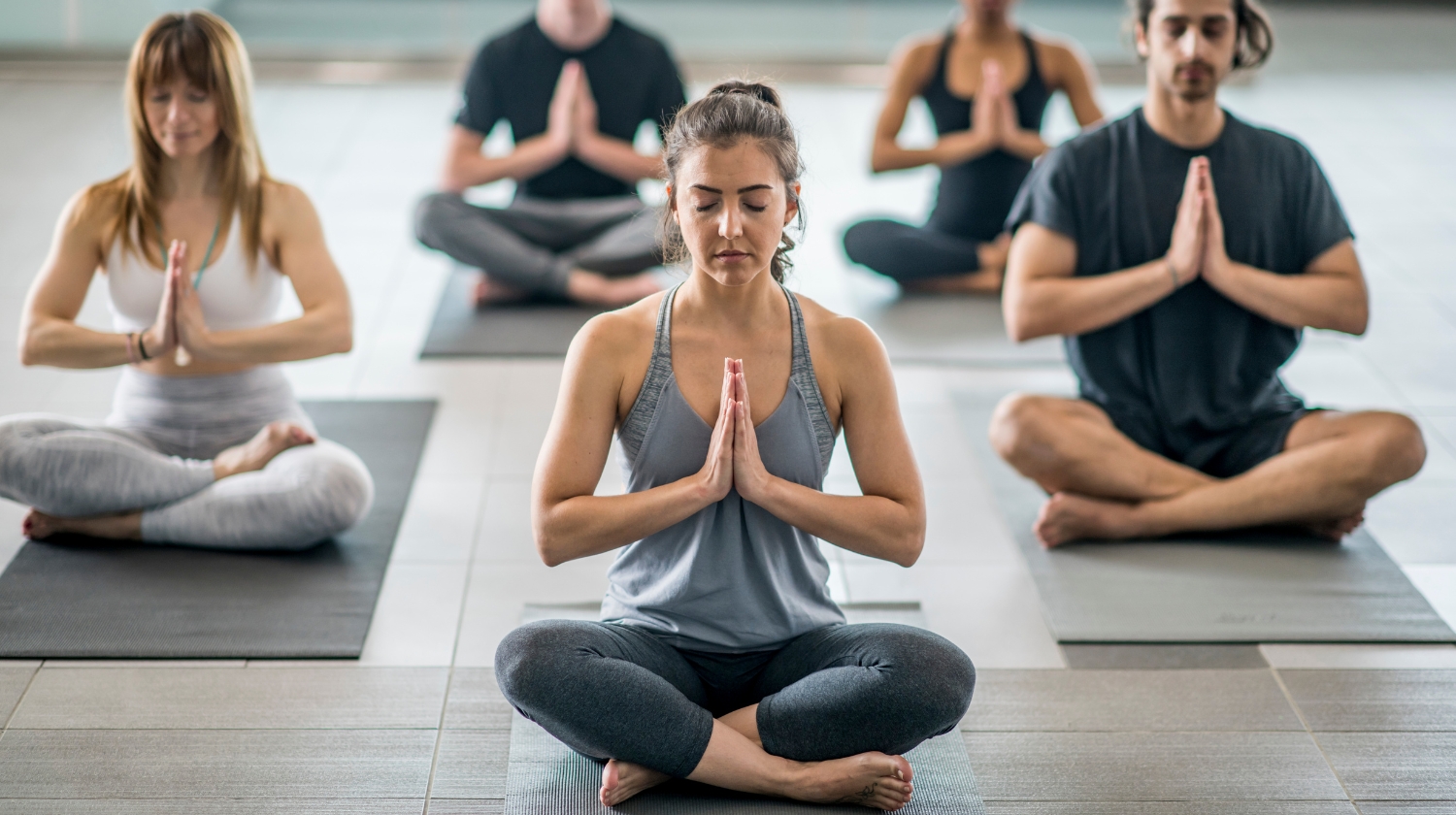How To Overcome Social Anxiety: 8 Helpful Tips To Try 2024

You’re invited to your friend’s birthday party and you want to see them, but all you’re thinking about is how many people will be there, and your stomach churns and you decide against it.
Maybe you’re noticing you have trouble keeping friends or romantic relationships. Or you feel stuck because you avoid situations that could improve your life. Or maybe you have anxious feelings just imagining going to a mall or busy cafe.
These are all signs of social anxiety disorder and about 10-15% of adolescents[1] have it, making it the most common anxiety disorder for teens. Thankfully, social anxiety[2] is very treatable. It depends on how much it’s affecting your life, how willing you are to work on it, and the support system you create for yourself.
Read on to learn how to overcome social anxiety and shyness with eight science-backed tips.
8 Helpful Tips To Overcome Social Anxiety
- Dive In Deep
- Challenge Your Beliefs
- Ask Friends Or Family Members For Help
- Slowly Introduce Yourself To Social Situations
- Set Boundaries And Give Yourself An Out
- Practice Daily Relaxation Techniques
- Focus On Your Health
- Be Compassionate With Yourself
Tips To Get Over Social Anxiety
These are some tips[3] for how to get over social anxiety that you can do all on your own:
Dive In Deep

Address your symptoms, don’t ignore them. Are you becoming more isolated? Do you have symptoms of depression,[4] such as lethargy and little motivation, feeling hopeless, or anxious in general? Is missing out on social activities or opportunities for fun or career advancement causing you distress? If anxiety affects your daily life, it is a disorder.
Begin observing and journaling your feelings to understand their triggers. You can bring your notes to a therapist or use a cognitive behavioral therapy[5] social anxiety workbook to develop a better understanding while learning tools to cope with your symptoms.
Social anxiety disorder, or SAD, is related to phobia in that it is a fear of being judged or embarrassed in social situations. Once you understand the root belief of your SAD, such as, If I put myself out there, everyone will see I’m a loser, you can begin to change it.
Challenge Your Beliefs

On one side of a page, write down what usually goes through your mind when you get anxious. On the other, challenge your negative thoughts. Do you know with 100% certainty they’re true? Instead, consider other possibilities and write down that same thought in a neutral or positive way. For example, if you usually assume people are thinking the worst of you at social events, try to imagine everyone is thinking exactly what they’re saying, instead.
Ask Friends Or Family Members For Help

We’re not built to do everything on our own, and this is especially true for healing from a mental health condition. We need a support system[6] to encourage us and help us gain the strength to push through our limitations and anxieties. Ask a good friend or kind family member for support in achieving your goals, like accompanying you to an event or role-playing and practicing your responses in different social situations.
Slowly Introduce Yourself To Social Situations

Setting small, time-bound, and realistic goals are one of the best ways to begin, along with self-compassion and patience. Here are some ideas for starting small with exposure therapy techniques:
- Say hello to someone at the grocery store or when you’re walking down the street. Their response, or lack of response, doesn’t matter. Your only goal is to speak.
- Pick up the phone when an unknown number calls. Even if it’s a telemarketer, at least you can practice your social skills and boundaries by saying, “No thank you, I’m not interested.”
- Go to an event for a pre-decided amount of time, even if it’s five minutes, slowly increasing the amount with each event.
There’s a great story of a man who wanted to get more comfortable asking women out on dates. He began by sitting on a bench every day and forced himself to speak to one person daily until, eventually, he was able to say hello to everyone who passed. He worked up his courage and self-confidence little by little and became comfortable introducing himself to strangers, including women for dates.
Set Boundaries And Give Yourself An Out

Set time limits and practice setting boundaries by telling people ahead of time what works for you and what doesn’t. For example, you can tell your friend you’ll come to his party, but only for 30 minutes. It’s a great way to slowly become more assertive and honest with your needs.
Practice Daily Relaxation Techniques

Mindfulness,[7] meditation, and deep breathing all help to reduce anxiety symptoms. As with any new endeavor, start small with two to five minutes of guided meditation each morning. Plan the place, time, and length, to ensure it’s realistic. Try different techniques as well, as some may work better than others. Progressive muscle relaxation, for example, also reduces anxiety and tension[8] well.
Focus On Your Health

Anxiety symptoms can take over when your physical health isn’t the best. Try to limit alcohol[9] and other drugs and replace them with activities that keep you distracted, like a new hobby. Going outside in green spaces[10] and walking or hiking, for example, drastically reduces symptoms of anxiety and depression. About 150 minutes a week of any type of physical exercise you enjoy can reduce symptoms.
Your nutrition also greatly affects how your body responds to stressors. Add a multivitamin and eat nutrient-dense whole foods, like raw nuts, dark chocolate, vegetables with olive oil, fatty fish, etc., to boost your energy levels, mood, and brain functioning. Start by setting a small goal for yourself, like adding one serving of vegetables to every dinner.
Be Compassionate With Yourself

You wouldn’t yell at a child who just started walking and fell down often, would you? You’d probably congratulate them for going as far as they did. So why don’t you do the same for yourself?
We learn best with support and compassion, feeling free to make mistakes so we can get back up and keep going. Long-lasting change and self-worth require patience and self-compassion,[11] while guilt and shame only hinder progress via negative reinforcement. So imagine you’re finally giving your child self all the love, support, and kind encouragement they need.
Remember, the majority of us did not receive emotionally secure parenting as a child. Most of us grew up learning how to process emotions by watching our parents, who often had little understanding or compassion for even themselves. Children cannot self-regulate their feelings and depend on their parent’s nervous system and responses to learn how to self-soothe. As adults with more self-awareness, it’s now our responsibility to learn how to parent ourselves exactly as we needed when we were young.
What Is Social Anxiety?
Social anxiety disorder,[12] also called social phobia, usually begins during the teenage years; unfortunately, this is when the need for a social life and peer approval feels most important. For some, it can be a phase that naturally dissolves with time. For many others, however, professional help is the best way to move forward.
Symptoms Of Social Anxiety Disorder
Consider diving into some personal development books focused on the topic and contacting a therapist who can teach you tools for managing anxiety better if you notice any of these symptoms:
- Constantly feeling judged or as though you’re doing something embarrassing, like appearing incompetent.
- Feeling inhibited from doing what you want to do, like meeting new people, finding a romantic partner, or taking part in career-advancing activities.
- Developing physical symptoms of anxiety when forced into social events — sweating, heart palpitations, trembling, feeling sick, etc.
- Worrying about everyday activities, such as shopping, talking to new people, or speaking on the phone.
- Avoiding social situations whenever possible, including group conversations, eating with others, etc.
- Frequent panic attacks when worried about social events.
- Low self-esteem, feeling not good enough, etc.
- Fear of being criticized.
- Avoiding eye contact.
Social anxiety symptoms are not only for introverts, either. You may enjoy meeting new people but also get quite anxious beforehand. Also, if you’re just quieter and prefer socializing in small groups, you don’t necessarily have social anxiety — that’s a personal preference.
Why Does Social Anxiety Disorder Develop?
These are some of the primary reasons[13] why SAD develops:
- Emotionally immature parents[14] or family conflict: emotionally unavailable or avoidant parents and poor parenting, especially overly controlling and low-warmth parents, or trauma, or physical, sexual, or emotional abuse.
- Negative childhood social experiences: bullying, rejection, teasing, humiliation.
- Family history: biological root if parents or siblings have SAD.
- Chronic condition or appearance that draws attention and self-consciousness.
- New socially demanding situations.
While it commonly develops in adolescence, it can also appear if you’re going through a stressful and demanding phase in life. It could be a big move, a new career or social setting, etc.
It may pass on its own once you’ve adapted, but seeing a therapist and working on self-help will speed up your ability to adjust more easily.
How To Cope With Social Anxiety
Therapy, self-help, and possibly even medication are all options on how to overcome SAD Learning to cope is very possible and has high success rates,[15] with the following options helping:
Talk Therapy
Speaking with a therapist regularly or joining a free[16] support group gives you the best chance of overcoming social anxiety. CBT[17] is considered the best option for treating SAD, along with psychodynamic therapy.[18] Your therapist can also recommend self-guided CBT programs you can do on your own.
Self-Help
Following the tips above is an act of self-care that depends on no one but yourself. Books and online programs[19] you can do yourself show promise. You can also practice self-care activities to boost your confidence and mental well-being, such as:
- Sleep hygiene — Ensuring you have a sleep routine[20] to balance hormones and reduce anxiety symptoms, although poor sleep and anxiety may be a vicious cycle, with one causing the other.
- Setting boundaries to give yourself enough rest and alone time to recharge.
- Journaling regularly to let out your emotions and track your progress.
Medication
Psychological and pharmacological interventions for adults include selective serotonin reuptake inhibitors, such as SSRIs,[21] such as escitalopram or sertraline. For children and adolescents, CBT is the primary treatment, including workbooks to help children develop goals, understand their emotions, and develop coping mechanisms.
When To Seek Help
If you’ve noticed any of the social anxiety symptoms affecting your health, work, or personal life, it’s become a disorder. It’s time to seek professional help and contact a therapist and doctor for a general check-up to ensure there are no other underlying medical causes.
While it might seem overwhelming to discuss this with someone, a mental health professional or support group can become an indispensable support system, offering safe-place understanding and encouragement. We all need a stable and caring support system to heal from trauma and live a balanced life.
Summary
Having a bit of social anxiety is normal, especially if you’re going through a difficult phase in your life. It can become a disorder, however, when it interferes with your daily life and relationships. Once you notice it’s affecting you negatively and preventing you from living your life to its fullest, you can begin to work on it on your own and with the help of a therapist or support group.[22]
As you challenge your beliefs, learn coping tools, and set realistic goals to push yourself forward, you can heal from SAD. The success rates are high and the more compassionate you are with yourself, the easier a time you’ll have. If you’re wondering how to overcome social anxiety fast, group therapy or one-to-one support is your best bet.
+ 22 sources
Health Canal avoids using tertiary references. We have strict sourcing guidelines and rely on peer-reviewed studies, academic researches from medical associations and institutions. To ensure the accuracy of articles in Health Canal, you can read more about the editorial process here
- Garcia, K.M., Carlton, C.N. and Richey, J.A. (2021). Parenting Characteristics among Adults With Social Anxiety and their Influence on Social Anxiety Development in Children: A Brief Integrative Review. Frontiers in Psychiatry, [online] 12. doi:10.3389/fpsyt.2021.614318.
- Cleveland Clinic. (2020). Anxiety Disorders: Types, Causes, Symptoms & Treatments. [online] Available at: https://my.clevelandclinic.org/health/diseases/9536-anxiety-disorders.
- zaleska (2021). Need Help Overcoming Social Anxiety? 6 Tips From an Expert. [online] Cleveland Clinic. Available at: https://health.clevelandclinic.org/how-to-overcome-social-anxiety/.
- NHS Choices (2023). Symptoms – Clinical depression. [online] Available at: https://www.nhs.uk/mental-health/conditions/clinical-depression/symptoms/.
- Butler, R.M., O’Day, E.B., Swee, M.B., Horenstein, A. and Heimberg, R.G. (2021). Cognitive Behavioral Therapy for Social Anxiety Disorder: Predictors of Treatment Outcome in a Quasi-Naturalistic Setting. Behavior Therapy, [online] 52(2), pp.465–477. doi:10.1016/j.beth.2020.06.002.
- Dour, H.J., Wiley, J.F., Roy-Byrne, P., Stein, M.B., Sullivan, G., Sherbourne, C.D., Bystritsky, A., Rose, R.D. and Craske, M.G. (2013). PERCEIVED SOCIAL SUPPORT MEDIATES ANXIETY AND DEPRESSIVE SYMPTOM CHANGES FOLLOWING PRIMARY CARE INTERVENTION. Depression and Anxiety, [online] 31(5), pp.436–442. doi:10.1002/da.22216.
- Carlton, C.N., Sullivan-Toole, H., Strege, M.V., Ollendick, T.H. and Richey, J.A. (2020). Mindfulness-Based Interventions for Adolescent Social Anxiety: A Unique Convergence of Factors. Frontiers in Psychology, [online] 11. doi:10.3389/fpsyg.2020.01783.
- Journal of Human Behavior in the Social Environment. (2023). Progressive Muscle Relaxation. [online] Available at: https://www.tandfonline.com/doi/abs/10.1300/J137v13n03_04.
- Haynes, J.C., Farrell, M., Singleton, N., Meltzer, H., Araya, R., Lewis, G. and Wiles, N.J. (2005). Alcohol consumption as a risk factor for anxiety and depression. British Journal of Psychiatry, [online] 187(6), pp.544–551. doi:10.1192/bjp.187.6.544.
- Mental Health Foundation. (2022). Nature: How connecting with nature benefits our mental health. [online] Available at: https://www.mentalhealth.org.uk/our-work/research/nature-how-connecting-nature-benefits-our-mental-health.
- Self and Identity. (2023). Self-Compassion: An Alternative Conceptualization of a Healthy Attitude Toward Oneself. [online] Available at: https://www.tandfonline.com/doi/abs/10.1080/15298860309032.
- NHS Choices (2023). Social anxiety (social phobia). [online] Available at: https://www.nhs.uk/mental-health/conditions/social-anxiety/.
- Mayo Clinic. (2021). Social anxiety disorder (social phobia) – Symptoms and causes. [online] Available at: https://www.mayoclinic.org/diseases-conditions/social-anxiety-disorder/symptoms-causes/syc-20353561.
- Garcia, K.M., Carlton, C.N. and Richey, J.A. (2021). Parenting Characteristics among Adults With Social Anxiety and their Influence on Social Anxiety Development in Children: A Brief Integrative Review. Frontiers in Psychiatry, [online] 12. doi:10.3389/fpsyt.2021.614318.
- American Journal of Psychiatry. (2014). Long-Term Outcome of Psychodynamic Therapy and Cognitive-Behavioral Therapy in Social Anxiety Disorder. [online] Available at: https://ajp.psychiatryonline.org/doi/full/10.1176/appi.ajp.2014.13111514.
- Inspire. (2023). Mental Health America. [online] Available at: https://www.inspire.com/groups/mental-health-america/topic/anxiety-and-phobias/?origin=tfr.
- NHS Choices (2023). Overview – Cognitive behavioural therapy (CBT). [online] Available at: https://www.nhs.uk/mental-health/talking-therapies-medicine-treatments/talking-therapies-and-counselling/cognitive-behavioural-therapy-cbt/overview/.
- Zhang, Q., Yi, P., Song, G., Xu, K., Wang, Y., Liu, J., Chen, Z., Zhang, H., Ma, L., Liu, W. and Li, X. (2022). The efficacy of psychodynamic therapy for social anxiety disorder–A comprehensive meta-analysis. Psychiatry Research, [online] 309, p.114403. doi:10.1016/j.psychres.2022.114403.
- Furmark, T., Carlbring, P., Hedman, E., Sonnenstein, A., Clevberger, P., Bohman, B., Eriksson, A., Hållén, A., Frykman, M., Holmström, A., Sparthan, E., Tillfors, M., Ihrfelt, E.N., Spak, M., Eriksson, A., Ekselius, L. and Andersson, G. (2009). Guided and unguided self-help for social anxiety disorder: randomised controlled trial. British Journal of Psychiatry, [online] 195(5), pp.440–447. doi:10.1192/bjp.bp.108.060996.
- Australian Psychologist. (2022). Effects of anxiety and sleep on academic engagement among university students. [online] Available at: https://www.tandfonline.com/doi/abs/10.1080/00050067.2021.1965854.
- Rodebaugh, T.L., Holaway, R.M. and Heimberg, R.G. (2004). The treatment of social anxiety disorder. Clinical Psychology Review, [online] 24(7), pp.883–908. doi:10.1016/j.cpr.2004.07.007.
- Adaa.org. (2023). Support Groups | Anxiety and Depression. [online] Available at: https://adaa.org/supportgroups.



